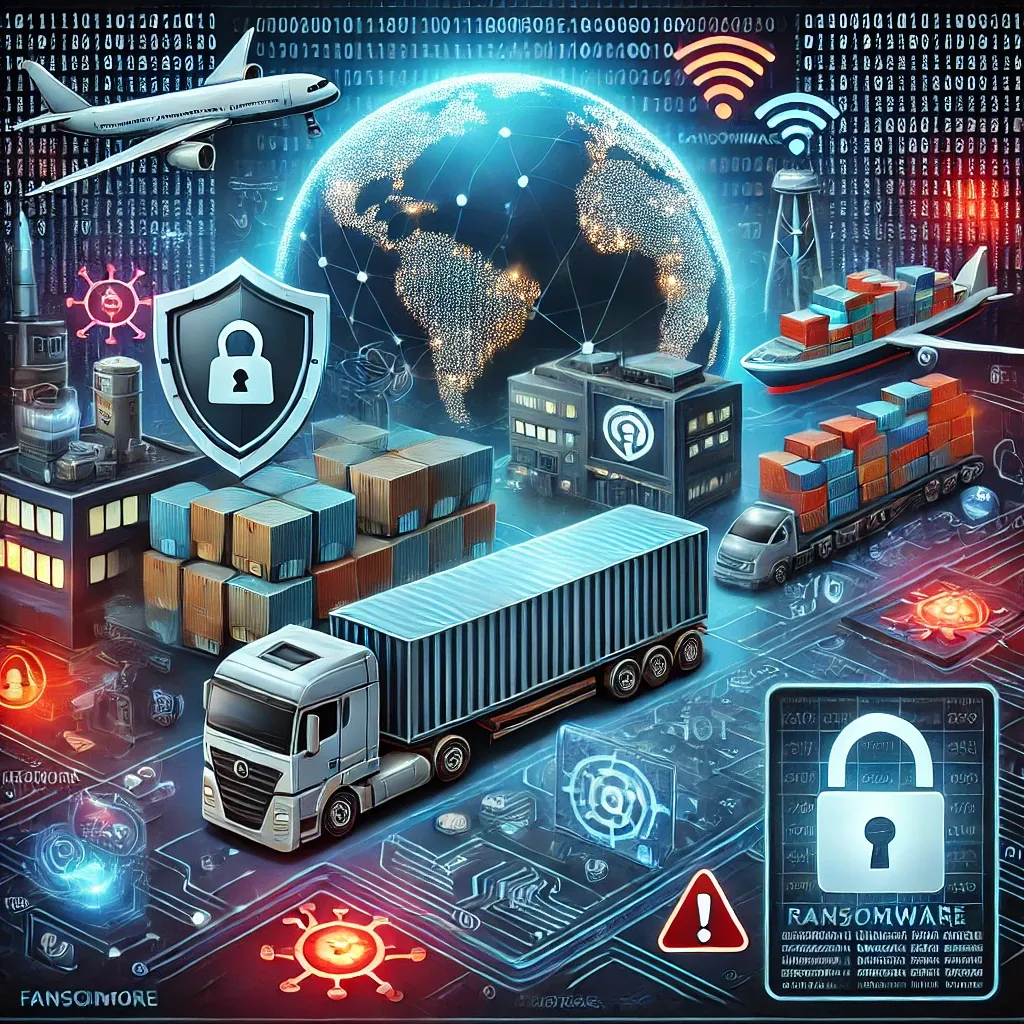
As the transportation and logistics industry becomes increasingly reliant on digital systems, it faces heightened vulnerability to cyberattacks. From ransomware to data breaches, these threats pose significant risks, disrupting operations, compromising sensitive data, and eroding trust among stakeholders. To safeguard their operations, companies must prioritize robust cybersecurity measures as a core component of their digital transformation strategies.
The Growing Importance of Cybersecurity in Logistics
- Digital Dependency
- The industry’s reliance on digital platforms for fleet management, shipment tracking, and supply chain coordination makes it an attractive target for cybercriminals.
- Technologies like IoT devices and blockchain, while beneficial, introduce additional entry points for potential attacks.
- The Stakes are High
- Disruptions caused by cyberattacks can halt transportation services, delay deliveries, and damage customer relationships.
- Data breaches can expose sensitive information, such as financial details, trade secrets, and personal customer data, leading to reputational damage and regulatory penalties.
Common Cybersecurity Threats
- Ransomware Attacks
- Cybercriminals encrypt company data and demand a ransom for its release, paralyzing operations until the issue is resolved.
- High-profile cases in the logistics industry highlight the devastating impact of ransomware on supply chains.
- Data Breaches
- Unauthorized access to sensitive information can result in financial losses and undermine trust between companies and their clients.
- Phishing and Social Engineering
- Employees are targeted through deceptive emails or communications designed to extract sensitive information or compromise security systems.
- Distributed Denial of Service (DDoS) Attacks
- These attacks flood systems with traffic, causing websites or applications to crash and rendering critical logistics services unavailable.
- IoT Vulnerabilities
- The increasing use of IoT devices in logistics, such as GPS trackers and cargo sensors, creates additional cybersecurity challenges, as these devices can be exploited if not properly secured.
The Impact of Cyberattacks
- Operational Disruptions
- Cyberattacks can cripple essential systems, causing widespread delays in shipments and supply chain bottlenecks.
- Financial Losses
- Companies face direct costs, such as ransom payments, and indirect costs, including lost revenue, legal fees, and fines for data breaches.
- Erosion of Trust
- A cybersecurity breach can tarnish a company’s reputation, making customers hesitant to trust their sensitive data with the affected organization.
- Regulatory Compliance Issues
- Failing to protect data adequately may result in violations of privacy laws and cybersecurity regulations, leading to significant fines.
Mitigating Cybersecurity Risks
- Implementing Strong Security Protocols
- Firewalls, intrusion detection systems, and encryption are essential for protecting sensitive data and preventing unauthorized access.
- Regular Security Audits
- Periodic assessments of IT systems help identify vulnerabilities and ensure compliance with the latest security standards.
- Employee Training
- Educating employees about recognizing phishing attempts, using secure passwords, and following cybersecurity best practices can significantly reduce risks.
- Robust Backup Systems
- Regularly backing up critical data ensures business continuity in the event of a cyberattack.
- Securing IoT Devices
- Ensuring that IoT devices have strong authentication protocols and are updated with the latest firmware can minimize potential vulnerabilities.
- Incident Response Planning
- Developing and testing a comprehensive incident response plan allows companies to respond quickly and effectively to cyberattacks, minimizing damage.
The Role of Collaboration
- Industry Partnerships
- Collaborating with other companies and industry associations can help share knowledge about emerging threats and best practices.
- Government Support
- Governments can play a vital role by providing resources, establishing cybersecurity frameworks, and enforcing regulations to protect the industry.
- Third-Party Expertise
- Partnering with cybersecurity firms can provide specialized expertise, ensuring advanced protection against evolving threats.
Looking Ahead: Building a Resilient Future
As digital systems become increasingly integral to logistics operations, the industry must treat cybersecurity as a critical priority. Companies that invest in advanced cybersecurity measures will not only protect their operations but also gain a competitive edge by fostering trust and reliability. By staying vigilant and adopting a proactive approach, the transportation and logistics sector can navigate the challenges of the digital age with confidence.
Conclusion
Cybersecurity is no longer optional for the transportation and logistics industry—it is essential. With the right strategies in place, companies can defend against cyber threats, protect their sensitive data, and maintain operational integrity in an increasingly connected world. As the industry continues to innovate, a strong cybersecurity foundation will be key to ensuring its growth and resilience.
Jenny is a business insurance broker with Waypoint Insurance. She can be reached at 604-317-6755 or jhansen@waypoint.ca
Jenny Holly Hansen is a cohost with Chris Sturges of the Langley Impact Networking Group. You are welcome to join us on Thursday’s from 4pm to 6pm at: Sidebar Bar and Grill: 100b - 20018 83A Avenue, Langley, BC V2Y 3R4
Jenny Holly Hansen is a cohost with Chris Sturges of the WRN News - Langley Edition
Tags: #Langley Impact Networking #Industry Insights # #Transporation and Logistics #Supply Chain Disruption #Rising fuel Costs # Driver Shortages # Cyber Security Risks #Jenny Holly Hansen

